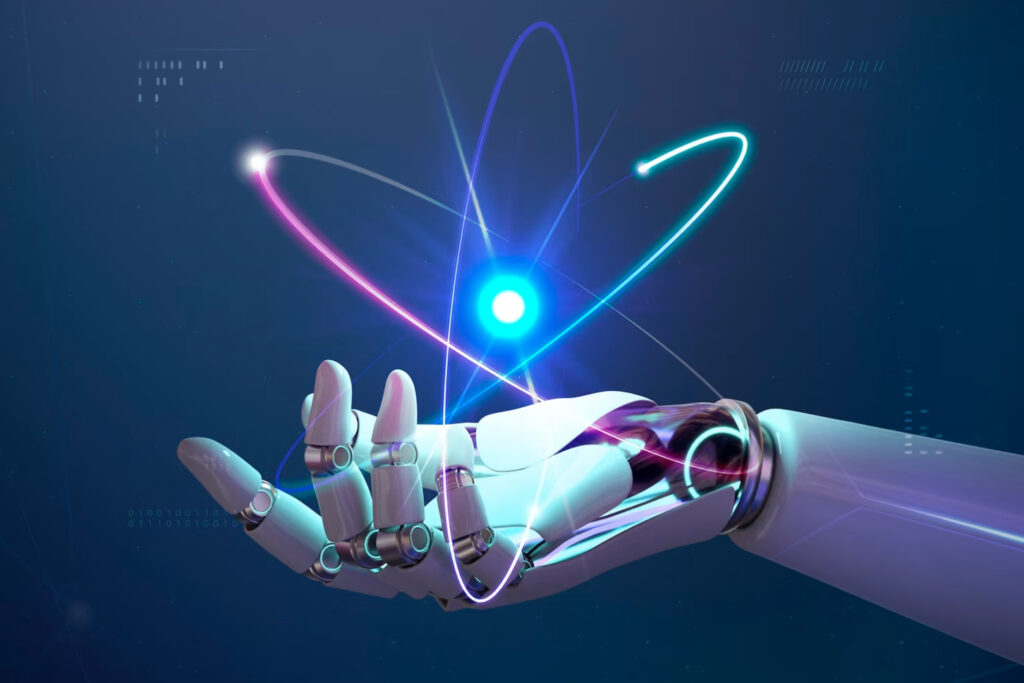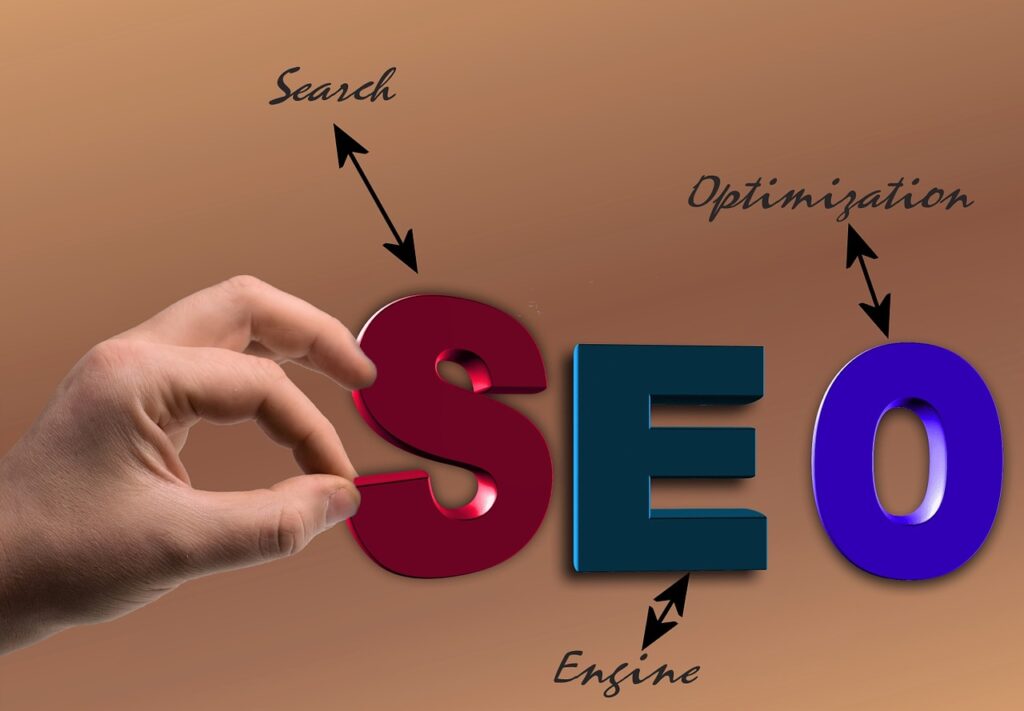AI, or Artificial Intelligence, is the ability of machines to perform tasks that would typically require human intelligence, such as recognizing patterns, making predictions, and learning from experience. AI has become increasingly sophisticated in recent years, and it’s starting to have a significant impact on the world of marketing.
One of the primary benefits of using AI in marketing is that it can help businesses optimize their SEO efforts. AI-powered tools can analyze search engine data to identify patterns and trends, which can help businesses create more effective SEO strategies. AI can also help businesses personalize their content by analyzing user data and tailoring content to specific audiences.
Another benefit of using AI in marketing is that it can improve advertising performance. AI algorithms can analyze large amounts of data to identify the most effective advertising strategies and target audiences, leading to better ROI and more efficient ad spend.
However, it’s important to understand that AI is not a silver bullet solution. While it can benefit businesses significantly, it’s important to approach AI with a clear understanding of its limitations and potential biases. Businesses need to be aware of the potential for AI bias and carefully monitor and audit their AI systems to ensure that they are fair and ethical.
Overall, the impact of AI on marketing is significant and will only continue to grow as AI technology advances. It’s important for businesses to stay informed about the latest AI-powered tools and techniques and to approach AI with a clear understanding of its benefits and limitations.
AI in SEO
AI is transforming the world of SEO, and it’s becoming increasingly essential for digital marketers to understand how to leverage AI to improve their SEO strategy. Here are some ways that AI is changing SEO, along with some best practices for optimizing SEO with AI.
Conduct keyword research with AI-powered tools: AI-powered tools can analyze search engine data to identify patterns and trends, which can help businesses determine the most effective keywords for their SEO strategy. By leveraging these tools, businesses can gain insights into the keywords and topics that their target audience is searching for, and adjust their content and SEO strategy accordingly.
Optimize content with NLP: Natural Language Processing (NLP) is a branch of AI that helps computers understand human language. By leveraging NLP, businesses can optimize their content to better match the language used by their target audience. NLP-powered tools can analyze content to identify the most relevant keywords and topics, and suggest changes to improve the content’s relevance and quality.
Monitor and analyze performance with machine learning: Machine learning is a subset of AI that enables computers to learn and adapt based on data. By leveraging machine learning, businesses can monitor their SEO performance and analyze data to identify patterns and trends. This data can then be used to optimize SEO strategies and improve overall performance.
Utilize schema markup for better search visibility: Schema markup is a standardized way of organizing data on websites. By utilizing schema markup, businesses can provide search engines with additional context and information about their content, which can improve their search visibility and ranking. AI-powered tools can help businesses identify the most effective schema markup for their content, and implement it to improve their SEO.
Overall, AI is transforming the world of SEO, and businesses that leverage AI-powered tools and techniques will have a significant advantage over those that don’t. By following these best practices, businesses can optimize their SEO strategies and improve their overall search visibility and ranking.
AI in Content Marketing
AI is also revolutionizing content marketing by enabling personalization, targeting, and even content creation. In this section, we’ll explore how NLP and other AI-powered tools can help businesses improve their content marketing strategy.
Use NLP to analyze and optimize content for better engagement and relevance: Natural Language Processing (NLP) is a subset of AI that helps computers understand human language. By leveraging NLP-powered tools, businesses can analyze their content to identify the most relevant topics and keywords. This analysis can then be used to optimize the content for better engagement and relevance to their target audience.
Personalize content with AI-powered recommendation engines: AI-powered recommendation engines use data to suggest personalized content to individual users. By leveraging these tools, businesses can provide their audience with content that is tailored to their interests and preferences. This can improve engagement and ultimately drive more conversions.
Leverage AI to identify and target new audiences: AI-powered tools can analyze data to identify new audiences that may be interested in a business’s products or services. By leveraging these tools, businesses can expand their reach and target new audiences with their content marketing campaigns.
AI in Paid Advertising
AI is also transforming the world of paid advertising, enabling businesses to improve their ad targeting and bidding strategies. Here are some ways that AI-powered tools can help businesses optimize their paid advertising campaigns:
Use predictive analytics to identify high-performing audience segments: Predictive analytics can be used to identify the audience segments that are most likely to convert. By leveraging AI-powered tools to analyze data, businesses can identify patterns and trends that may not be apparent to humans, and use that data to target their ads more effectively.
Leverage machine learning for automated bidding and optimization: Machine learning can be used to automate bidding and optimization for paid advertising campaigns. By analyzing data in real-time, machine learning algorithms can adjust bids and optimize ads to improve performance and achieve better results.
Utilize AI-powered tools for ad copy creation and testing: AI-powered tools can also be used to create and test ad copy. By leveraging these tools, businesses can quickly create multiple versions of ad copy and test them to identify the most effective messaging and calls to action.
Conclusion
The impact of AI on marketing is significant, and it’s only going to become more prevalent in the future. In this article, we’ve explored how businesses can leverage AI-powered tools to improve their SEO, content marketing, and paid advertising campaigns.
We’ve seen how NLP and other AI-powered tools can be used to optimize content for better engagement and relevance, personalize content to target audiences, and identify new audience segments. We’ve also explored how predictive analytics, machine learning, and AI-powered tools can be used to improve ad targeting, bidding strategies, and ad copy creation and testing.
The future of AI in marketing is promising, and we can expect to see continued advancements in AI-powered tools and techniques. As AI becomes more prevalent, businesses that are able to effectively leverage these tools will have a significant advantage in the market.
In conclusion, by embracing AI-powered tools and techniques and learning the impact of AI on marketing, businesses can improve their marketing strategies, better engage with their target audiences, and achieve better results.


